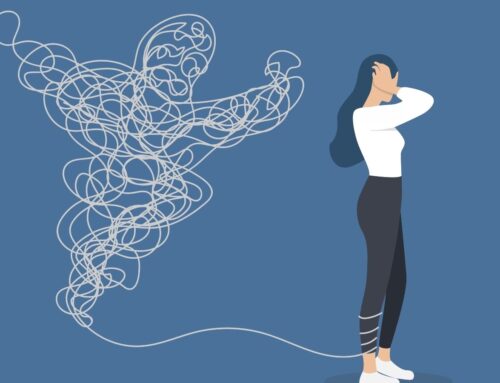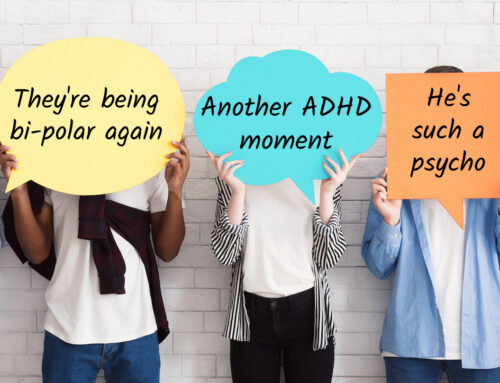By Sam Congdon, LMFT
Sitting for long periods can be harmful to your physical and mental health. Many of us find ourselves sitting more these days, whether it is due to a long workday, binge-watching the new Netflix show, or endless hours of gaming. It all seems harmless, but Harvard Health shares that sitting for an extended period of time can results in tight hamstrings in the back of the thighs, making it harder to extend your legs or straighten your knees all the way, which ultimately inhibits walking. An abundance of sitting may start out as physical pain, but physical pain sends a negative response to our brain, which can interrupt our ability to experience positive feelings, ultimately affecting the state of our mental health. So, let’s explore how movement can better support our mental health.
There is a clear link between the mind and the body. According to Sharma, Madaan, and Petty in an issue of the Journal of Clinical Psychiatry, movement has been shown to reduce both anxiety and depression (MentalHelp.net). When you move your body you are increasing blood flow to the brain, which helps influence the hypothalamic, pituitary, adrenal axis areas of our body that help regulate “the stress hormone,” known as cortisol. Carrie Steckl author of the article How the Three Pillars of Exercise Benefit Mental Health, states this bodily process brought forth by movement positively affects parts of the brain that impact mood and motivation, such as the limbic system, the amygdala, and the hippocampus.
So, what kind of movement benefits our mental health? Well, movement or exercise can embody an array of different definitions, such as walking, running, cycling, dancing, stretching, etc. Exercising feels good, a statement we hear often, and while this may be true, there are specific types of movement that can benefit our mood and overall mental health more. Bonnie Berger, EdD, one of the co-authors and director of Bowling Green’s School of Human Movement, Sport and Leisure Studies says, “It seems that many types of exercise—particularly non-competitive exercise—are related to positive mood alteration.” Non-competitive movement, where you are able to focus on your body and how you feel seems to be the link between movement and a more positive mood, thus a potential decrease in negative mental health symptoms.
As a result, movement is good for you and lack of movement can be associated with poor mental health and physical health. Moderate, non-competitive levels of movement, such as walking, gardening, yoga, aerobics, stretching can tend to lead to more pleasure and a positive mood. Whereas, more intense exercises may cause displeasure, therefore decreasing your mood and your willingness to get out and move again. The Official Journal of World Psychiatric Associations shares that if you want to add more movement to your life, it may be better to ditch the high-intensity competitive workouts and opt for a nice walk or morning stretch. It is not about the intensity of the movement, but the consistency. Maybe our new motto should be “A little movement a day keeps the doctor away.” So, remember, if you want to help feel better physically and mentally a little movement of your choice may go a long way.
References:
Novotney, A. (2009). Yoga as a Practie Tool. American Psychological Association. https://www.apa.org/monitor/2009/11/yoga
(2018). Stetch For Your Mental Health. The Do More Agriculture Foundation. https://www.domore.ag/blog/2018/7/12/stretch-for-your-mental-health
Biddle, S. (2016) Physical activity and mental health: evidence is growing. Official Journal of the World Psychiatric Association (WPA). US National Library of Medicine National Institutes of Health:https://www.ncbi.nlm.nih.gov/pmc/articles/PMC4911759/ https://www.mentalhelp.net/blogs/how-the-three-pillars-of-exercise-benefit-mental-health/
Sharma, A., Madaan, V., & Petty, F. D. (2006). Exercise for mental health. Primary Care Companion to the Journal of Clinical Psychiatry, 8(2), 106.
Pillay, S. MD. (2016). How Simply Moving Benefits Your Mental Health. Harvard Health Publishing.https://www.health.harvard.edu/blog/how-simply-moving-benefits-your-mental-health-201603289350






